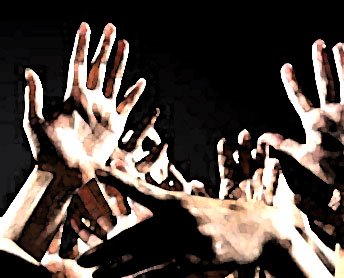Does Popularity Still Matter?
0 Comments Published by Ray Podder on Friday, June 30, 2006 at 5:40 PM.
Today there are fewer blockbuster hits in the music industry, fewer movies that the whole world can’t wait to see and fewer books the whole world wants to read. At the same time, its never been a better time to be a movie fan, music lover or reader and consequently a filmmaker, musician or author. It seems that there is an audience for every type of creation as even indicated my the emails I get on this little blog here.
This got me thinking about the idea of popularity itself to see if “popularity” can still be qualified as a valid influencer in the connection economy.
In a less connected world, direct access to information was hard to come by. Most people had little evidence to make out whether or not something was worthwhile or not other than by the consensus of others.
Before user ratings, relevance matches and peer recommendations were commonplace the biggest reason to trust something was a claim that was widely known. Whether or not that claim was relevant to each one of us didn’t matter much, because most of our voices couldn’t be heard past the consensus anyway.
The Internet and connected world was supposed to change all of that, and if you look closely it already has. However, the people who got used to sending out the messages to sway the crowds may not want to see it that clearly yet.
How else do we explain MySpace being cluttered with banner ads? People clamoring for the number one spot on Google when that 1st spot means little to someone who is trying to get closer to what they “meant” by their query? 3D virtual billboards generating “awareness” metrics within video games?
If awareness clearly does not equal relevance why are advertisers still pushing the issue?
Because awareness, recall, retention was exactly how something became “popular” in a PRE-interconnected instantly conversational paradigm of civilization.
But what about voting? Isn’t popularity still relevant? Of course, but to whom? The mass market is dead and niche is king! Niche used be defined by geography, and today it maybe worldview and for every ideology there will be subscribers. The key difference is that those subscribers aren’t there because they heard it was the “thing to do”, they are there because you are enabling them to MAKE MEANING for who they think they are. That’s a HUGE difference!
That means the focus needs to be on RELEVANCE and NOT AWARENESS. If you “get” that, I have a few worthwhile things to offer. If you don’t, just wait for a few more disappointing box office returns, declining ROI on your SEO campaign and the garage sale on the leftover parts of your "marketing machine" when it finally breaks down!
Can I Pay You to Love (...OK Like...OK Remember...) Me?
0 Comments Published by Ray Podder on Sunday, June 18, 2006 at 1:15 PM.
If a guy at the gas pump came up to you and offered to fill up 1/100th of your tank if you just heard his sales pitch for his store down the street what would you say? Given the price of gas today, it might not sound like a bad offer and you may even walk away liking the guy and even think of checking out his store.
Now imagine that every time you visit the pump, there are 100s of guys offering to do the same thing. You might say cool! Free Gas! But will you remember any of the guys whose sales pitch you had to sit through? Will you have the time to actually consider listening to these pitches just to get free gas?
Interestingly, these are exactly the media models the mobile industry is now pitching to the advertising industry and vice versa. Watch a video ad and we’ll pick up the bandwidth cost and even give your subscriber free minutes. Sounds good, right? But for whom?
Though the intentions may be good to kick start mobile commerce in this country, is it really doing any service to advertisers? How long before your brand’s ROI takes a dive and the novelty wears off? Is this really doing any good for customers? If watching clips get you free minutes, will you really watch them or just play them to collect? Does awareness really mean anything if saturation results in lower recall, zero engagement and mostly irrelevance?
I applaud the wireless guys for at least trying but I do think there’s a better way. One where relevance is personal and NOT based on just a previous action taken by the potential customer. Previous actions like selecting which clips I’ll watch doesn’t reveal intent or context.
Something better is coming though...I’ve got an idea or two in the general direction :)

We live in the age of paradox...or do we?
Today, it’s not about art or science, design or strategy, screen or experiential marketing, advertising or editorial, customers or advertisers it’s BOTH. In the era of disappearing contexts being “both” seems more normal than being either or; but why?
Why does being connected make us many things at once, and why should we even care?
I think the way to think about this is not just conceptually, but practically. Being many things simultaneously is nothing new. We are already many things in our daily lives from buyer to seller, offspring to parent, friend to adversary at any given moment. The thing that determines which one of those is most relevant is the context we’re in right now. When the context involves all the parties associated with defining those relationships (such as your annual family business picnic) everyone of those relationships are readily apparent.
The real factor here is the visibility of all sides of the connections.
The world today is mimicking that dynamic with hyper-connected individuals empowered with instant communication accessibility. If you think of our interconnected marketplace and society like your family business picnic it is actually that simple.
We are not really living in a sea of apparent contradictions, we are just seeing all sides of our interconnected existence.